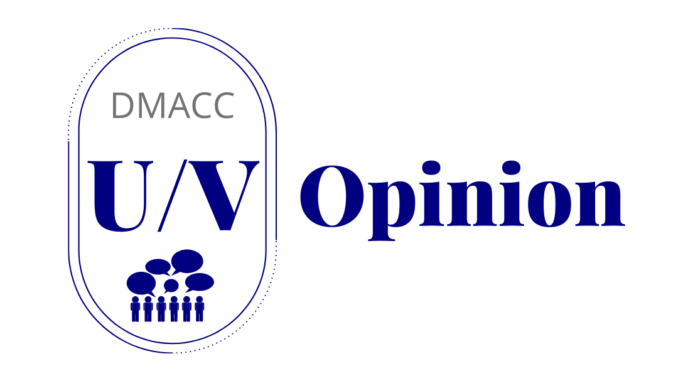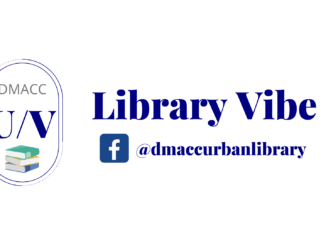
Emma Kellogg
In this technological day and age, many opinions have melded with facts and have turned into most people’s main news source. While this isn’t always a bad thing, many issues arise when new opinions multiply at the speed of light with the help of social media platforms and the ever-changing political state of our society. We, as a society, should regulate all opinions the same, whether they’re on the liberal or conservative side of politics.
“Social Media and Online Speech: How Should Countries Regulate Tech Giants?” written by Anshu Siripurapu and William Merrow, published only a month after the January 6 events at the Capitol, goes into detail about how social media played a large part in recruiting people to Trump’s cause. Many protestors for organizations like Black Lives Matter or Stop Asian Hate have critiqued platforms like Facebook about limiting and banning the radical content posted by the right, as well as what’s been posted by the left. For, while it is not sexually explicit or necessarily adult content in nature, many posts created by Trump supporters and other conservative people become dog whistle types for those who do want to incite violence or other crimes.
But on the other hand, I understand that social media, especially those platforms regulated in the United States, is known as somewhat of a “free speech” free-for-all. I understand that many people use social media to vent and to find like-minded people and, sometimes, the regulations created by platforms like TikTok and Twitter can be harsh for adults to express their opinions or hobbies, sometimes even their occupations. Heavy rules about what can be said and shown can be infuriating for adult creators who need to show their audience what they do, and even mainstream media can have issues with providing trailers for action films and documentaries at times.
However, we need these regulations for the safety of those who sneak onto platforms before they are of age, for those using the platforms to promote positivity, and for the protection of those who cannot distinguish between what is hard fact and what is an opinion. If we expose children and those who have not yet been educated on social media to the radical thoughts of both leftists and conservatives, or any non-political social media wars, we will be creating ill-educated soldiers that will do stupid things and repeat what has been told to them, even if they’re not making any sense at all.
Regulations and bans need to exist on social media or else there will be more riots in the streets, more cybercrime committed against innocent people, and fear of opening sites/apps like Twitter and seeing things that really shouldn’t be shown on a public platform. To better work with our social media platforms, it would be best to continue to protest and educate those executive officers and employees of large corporations like Facebook and Tiktok. This would help to create safe spaces for all sorts of people, those who need more family-friendly content, and those who wish to have a place to be an adult in peace.
Nate Moklestad
“Cancel culture” can be used as a helpful wakeup call to those with a large social presence that shows them how what they say really does matter and shouldn’t always be brushed off as a joke. Seeing how words can impact others and facing consequences for that can allow room for growth and change. I’ve seen firsthand how a push for accountability for someone in a position of influence can end up being the most beneficial thing for everyone. In my senior year of high school, a teacher had a bit of a temper and would take out class frustrations on students they deemed “slow” and started doing class challenges for extra points that required speed. After a few of us students demanded accountability and explained what was going on, they were reprimanded. In the end, they seemed to learn from the experience and realized how oblivious they were as to how their speech impacted others and immediately changed their entire teaching approach.
The power of speech should not be underestimated. Free expression is the very foundation of the United States, without freedom of speech many minorities would still lack their basic rights in this country. But when that power is used to incite chaos, violence, hatred, and the sparks of division, it loses the very idea of freedom and is twisted into an abusive tool of harm. I’ve seen firsthand how such a promising freedom has been used to attack the safety and lives of others. In my high school, what was intended to be an open invitation for all students to come to an LGBTQ+ focused diversity event turned into a hate-filled email chain. These instigators latched onto this opportunity to fill the email thread with every slur they could imagine against the LGBT community. The offenders’ defense was freedom of speech, which only left them with a slap on the wrist in the form of a warning. When school officials spoke to those students, the staff learned how this idea of online anonymity made them feel like they could say whatever offensive thing popped into their heads as face-to-face interaction was taken out of the equation. When people believe they can say or do whatever they please, no matter how harmful it is to others, is when things become dangerous. This moral dilemma over what defines free speech has left many feeling invincible, as they are led to believe that they won’t be held responsible for their harmful actions.
Some state that cancel culture can be problematic and even hypocritical. Should people of influence have their platforms swept from beneath their feet and their voices silenced if they make an offensive comment? This is the land of free speech after all, is it really anyone’s right to take that freedom away from others? Should influencers, political figures, and celebrities be held accountable for something they said or posted on social media in years past (Vogels et al.)? Punishment for long past actions doesn’t seem to align well with the belief that people can change. Also, some might say that not everything in life must come down to a vote of popularity, especially when it comes to someone’s livelihood.
But when that person has an influential hold on society, hateful, divisive statements can take lives, which are far more crucial than a person’s livelihood. For example, look at what happened on January 6, where the spiteful words of a bitter president incited a mob to attack the capital of the United States. Hearing about the harrowing incident from the perspective of police officer Fanone, who was there guarding the capital that day and how he was mercilessly beaten, made my gut wrench (Ball). Lives of brave defenders were cut short that day as a rage-fueled army of Trump’s followers marched with hate in their hearts, emboldened by the speech of a president.
The events of January 6 are exactly the reason why people need to be held accountable for their actions and how “freedom of speech” can only go so far. There’s a difference between infringing on rights and stopping someone from causing societal harm. To allow a single person in power the freedom to sow discord and attack those who are less fortunate and go unchecked is a betrayal of people’s rights to liberty and the pursuit of happiness. Seeing how social media companies took a stand by banning Trump and some of his allies was a good example of how these situations can be handled well (Denham). By shutting down the hateful platform of a divisive person, the many millions, and billions of other users online could be kept safe.
The gift of free speech should be cherished and used as a beacon of hope to unite everyone on common grounds and to settle disputes when necessary. The email scandal at my high school caused dark days that made LGBTQ+ students feel targeted and frightened. Speaking up with several students not only to demand change, but also to remind those who felt backed into a corner that they were seen and heard, was a refreshing reminder of how speech can be used for unity. Hate has no place in this world, and it shouldn’t be able to use “freedom” as a cover for discrimination. The importance of how we use our speech cannot be stressed enough. The next time you might believe that your words don’t matter, think carefully about who you’re talking to, what matters in your heart, and remember what your voice can accomplish.
Works Cited
Ball, Molly. “Officer Mike Fanone Survived the Capitol Riots. Then His Trials Began.” Time, 5 Aug. 2021, time.com/6087577/michael-fanone-january-6-interview/. Accessed 3 October 2021.
Denham, Hannah. “These Are the Platforms That Have Banned Trump and His Allies.” The Washington Post, WP Company, 26 Jan. 2021, www.washingtonpost.com/technology/2021/01/11/trump-banned-social-media/. Accessed 3 October 2021.
Vogels, Emily A., et al. “Americans and ‘Cancel Culture’: Where Some See Calls for Accountability, Others See Censorship, Punishment.” Pew Research Center, 27 Sept. 2021, www.pewresearch.org/internet/2021/05/19/americans-and-cancel-culture-where-some-see-calls-for-accountability-others-see-censorship-punishment/. Accessed 3 October 2021.




Be the first to comment